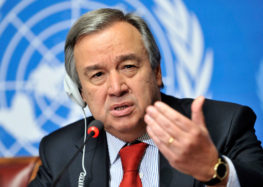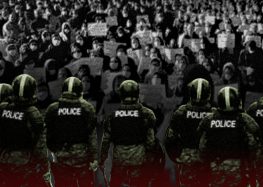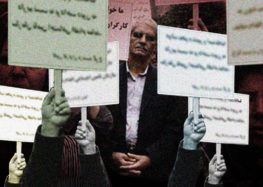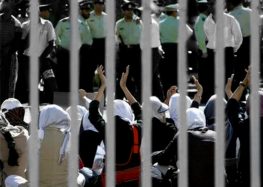Tehran Prosecutor Saeed Mortazavi to Serve Two-Year Prison Term for Protestor’s Death
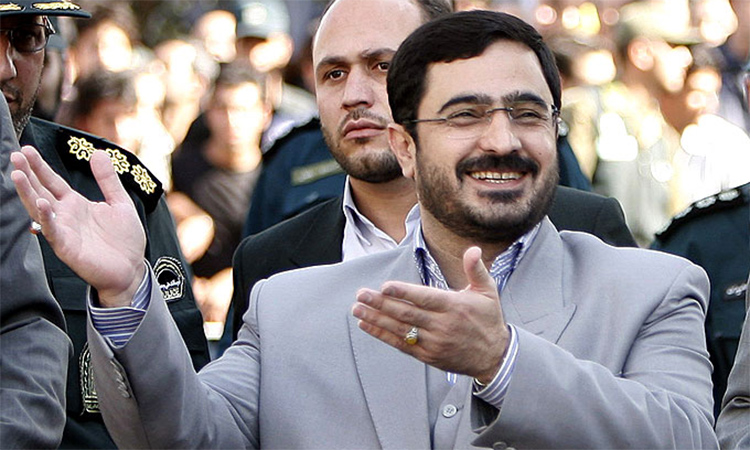
Former Tehran Prosecutor Saeed Mortazavi has received a two-year prison sentence for being an “accomplice to murder” and the “illegal detention” of Mohsen Rouholamini, who died after being picked up by security forces in Tehran during the widespread protests of 2009.
“When Saeed Mortazavi accepted some responsibility for what happened in the Kahrizak Detention Center, Branch 22 of the Appeals Court decided he deserved a reduction of his preliminary sentence from five years to two years in prison,” said Hassan Kamali, the lawyer representing the Rouholamini family, in an interview with the Center for Human Rights in Iran (CHRI) on November 27, 2017.
Rouholamini, Mohammad Kamrani, and Amir Javadifar died after being tortured in the Kahrizak Detention Center five days after they were arrested on July 10, 2009. The three were among about 150 protesters who were rounded up that day for participating in the peaceful protests in Tehran against the disputed result of the 2009 presidential election.
Those protests, which were violently repressed by the state, came to be known as Iran’s Green Movement.
The parliamentary Special Committee to Investigate the State of Detainees at Kahrizak issued a report on January 10, 2010, confirming the three had died in detention. However, the report failed to include two other related deaths.
Ramin Aghazadeh Ghahremani died in the hospital on July 18 a few days after being released from the Kahrizak. Ahmad Nejati Karegar died in the hospital on August 6 after being released on July 13.
In a letter submitted to the court on September 11, 2016, Mortazavi, the main suspect in the suit brought by the Rouholamini family, refused to take responsibility for his role in the deaths.
“As I was the Tehran prosecutor at the time, I express shame for this terrible incident, even though it happened without any deliberate intention, as God and my conscience are my witness,” wrote Mortazavi.
The Rouholamini family’s lawyer told CHRI that despite similarities in the cases, the judges ultimately failed to agree to also hold Mortazavi responsible for Kamrani’s death.
“The judges who ruled in the case involving Kamrani’s death were different than those in Rouholamini’s case,” said Kamali. “The two cases were similar, but the Appeals Court agreed with three judges in a five-judge panel who ruled that Mortazavi was not guilty in Kamrani’s case.”
Another lawyer told CHRI that the Kamrani family could still try to prove that Mortazavi should be held accountable for their loved ones’ death because there is “enough evidence.”
“The family of Amir Javadifar withdrew their suit against Mortazavi and settled the case,” said attorney Saleh Nikbakht on November 27. “They cannot do anything now. But Kamrani’s family can ask for a judicial review. There is enough evidence to prove Mortazavi committed the crime.”
“Mortazavi was charged with being an accomplice in the deaths because he delayed the transfer of the detainees to prison,” he added. “Three young men died during that period as a result of blows to the body, according to a report by seven prominent physicians and the chief medical examiner. Now that Mortazavi has been found guilty in a similar case, the Kamrani family can ask for a review.”
Mohammad Kamrani’s father, Ali, told CHRI he would make a decision after consulting with family members.
Mehdi Karroubi, who ran for president in 2009 and became a leader of the Green Movement, was the first politician in Iran to highlight the accusations of rape and torture at Kahrizak to the press and call for an investigation.
Karroubi, 2009 presidential candidate Mir Hossein Mousavi, and Mousavi’s wife Zahra Rahnavard have been under house arrest since February 2011 for leading the mass protests.
On September 12, 2009, the head of the Armed Forces Judicial Organization, Shokrollah Bahrami, confirmed that 90 out of the more than 100 people who had been detained at Kahrizak and later released had come to his office and filed complaints.
Two months later, the organization claimed that 98 detainees had filed complaints but that “after compensation and mollification, eventually 51 of them agreed to withdraw their complaints.”

